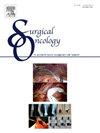上部直肠癌的定义和治疗回顾。
IF 2.3
4区 医学
Q3 ONCOLOGY
引用次数: 0
摘要
虽然新辅助治疗后采用全直肠系膜切除术(TME)治疗局部晚期中下段直肠癌的方法现已明确,但局部晚期上段直肠癌(LAURC)的治疗方法仍存在争议。虽然大多数团队和学术团体都建议进行部分直肠系膜切除术(PME)的前期手术(US),因为这似乎足以治疗这些肿瘤,但关于是否额外使用新辅助治疗和 TME 的文献仍存在冲突。目前关于 LAURC 治疗的建议并不反映实际的临床实践。值得注意的是,由于大多数数据来自不同队列的子分析,因此专门针对 LAURC 治疗的已发表数据非常少。造成数据不一致的另一个重要原因是,目前上段直肠癌的定义是基于解剖学标准,而解剖学标准很难再现,因此不同国际专业协会的定义也不尽相同。本综述的目的是在分析现有文献(包括解剖学和胚胎学数据)的基础上,深入探讨有关 LAURC 治疗的问题。本文章由计算机程序翻译,如有差异,请以英文原文为准。
Review of definition and treatment of upper rectal cancer
While the treatment of locally advanced lower and middle rectal cancer with total mesorectal excision (TME) after neoadjuvant therapy is now well defined, the treatment of locally advanced upper rectal cancer (LAURC) remains controversial. Although most teams and academic societies recommend upfront surgery (US) with partial mesorectal excision (PME), as this appears to be sufficient for these tumors, the literature remains conflicting regarding the additional use of neoadjuvant therapy and TME. Current recommendations for the treatment of LAURC do not reflect actual clinical practice. Notably, there is a paucity of published data specific to the treatment of LAURC since most of the data are from sub-analyses of different cohorts. Another important point responsible for the inconsistent data situation is the fact that the current definition of upper rectal cancer is based on anatomical criteria that are difficult to reproduce and therefore also differ between international professional societies.
The aim of this review is to provide a deeper insight into the issues surrounding the treatment of LAURC based on an analysis of the current literature, including anatomic and embryologic data.
求助全文
通过发布文献求助,成功后即可免费获取论文全文。
去求助
来源期刊

Surgical Oncology-Oxford
医学-外科
CiteScore
4.50
自引率
0.00%
发文量
169
审稿时长
38 days
期刊介绍:
Surgical Oncology is a peer reviewed journal publishing review articles that contribute to the advancement of knowledge in surgical oncology and related fields of interest. Articles represent a spectrum of current technology in oncology research as well as those concerning clinical trials, surgical technique, methods of investigation and patient evaluation. Surgical Oncology publishes comprehensive Reviews that examine individual topics in considerable detail, in addition to editorials and commentaries which focus on selected papers. The journal also publishes special issues which explore topics of interest to surgical oncologists in great detail - outlining recent advancements and providing readers with the most up to date information.
 求助内容:
求助内容: 应助结果提醒方式:
应助结果提醒方式:


